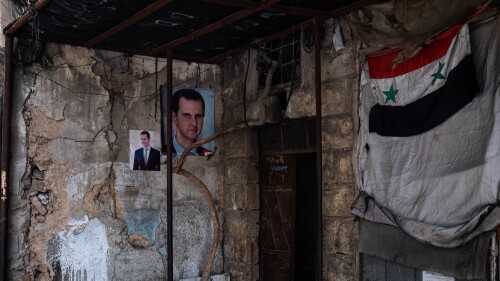Whence comes the main danger to homeland security in North America and Western Europe?
With the exception of the Oklahoma City bombing of 1995, notes Al-Qaeda authority Rohan Gunaratna, all major terrorist attacks of the past decade in the West have been carried out by immigrants. A closer look finds that these were not just any immigrants but invariably from a specific background: Of the 212 suspected and convicted terrorist perpetrators during 1993-2003, 86% were Muslim immigrants and the remainder mainly converts to Islam.
“In Western countries jihad has grown mainly via Muslim immigration,” concludes Robert S. Leiken, a specialist on immigration and national security issues, in an important new monograph, Bearers of Global Jihad: Immigration and National Security after 9/11 (published by the Washington-based Nixon Center, where Leiken is employed). Leiken’s research offers valuable insights.
Violent acts against the West, he finds, “have been carried out largely through two methods of terrorist attack: the sleeper cell and the hit squad.”
Hit squads – foreign nationals who enter the country with a specific mission, such as the 9/11 hijackers — threaten from without. Sleeper cells consist of elements quietly embedded in immigrant communities; Pierre de Bousquet, head of France’s counterintelligence service, says “they do not seem suspicious. They work. They have kids. They have fixed addresses. They pay the rent.” Sleepers either run terrorism support networks of “Muslim charities, foundations, conferences, academic groups, NGOs and private corporations” (prime example: Sami Al-Arian of the University of South Florida) or initiate violence on a signal (like the Moroccans who killed 191 people in Madrid this March).
That said, Muslim life in Western Europe and North America is strikingly different. The former has seen the emergence of a culturally alienated, socially marginalized, and economically unemployed Muslim second generation whose pathologies have led to “a surge of gang rapes, anti-Semitic attacks and anti-American violence,” not to speak of raging radical ideologies and terrorism.
North American Muslims are not as alienated, marginalized, and economically stressed. Accordingly, Mr. Leiken finds, they show less inclination to anti-social behavior, including Islamist violence. Those of them supporting jihad usually fund terrorism rather than personally engage in it. Therefore, most jihadist violence in North America is carried out by hit squads from abroad.
And, contrary to expectation, these come predominantly not from countries like Iran or Syria, or even Saudi Arabia and Egypt, for the simple reason that their nationals undergo extra scrutiny. Islamist terrorists are not dumb; they note this special attention and now recruit intensively from citizens of the 27 countries – mostly European – who, thanks to the Visa Waiver Program, can enter America for 90 days without a visa.
But even so, there are Frenchmen and there are Frenchmen. One named Zacarias Moussaoui, an Algerian immigrant, attracts more attention than one named Michael Christian Ganczarski, a Polish immigrant of German extraction – making a convert like Ganczarski the more potent jihadist. He is now sitting in a French jail, charged with a major role in the April 2002 bombing of a synagogue in Tunisia that killed 19 people.
To a lesser extent, the same pattern applies to Israel. Hezbullah has made efforts to recruit Europeans like German convert Steven Smyrek, caught before he could strap on a bomb. Hamas deployed Britons Asif Muhammad Hanif and Omar Khan Sharif, who murdered three people at a Tel Aviv bar. The same pattern also applies to Australia – such as the case of French convert and would-be jihadist Willie Brigitte.)
Mr. Leiken’s insights lead to important conclusions for counterterrorism.
- Assimilating indigenous Muslim populations is critical to the West’s long-term security.
- Given that the Islamist threat in the West “emanates principally from Europe,” European and North American security services should recognize they face basically different problems: one primarily internal, the other mainly external.
- Constructing immigration systems that keep out sleepers and hit squads while allowing normal business and pleasure travel should be a priority for Washington and Ottawa.
- For Americans, adjusting the Visa Waiver Program and controlling land borders with Canada and Mexico are higher priorities than worrying about Iranians and Syrians.
Mr. Leiken’s research guides Westerners to real homeland security. But achieving this will be a challenge, for acknowledging the European Islamist source of violence means giving up today’s easy reliance on euphemisms.







